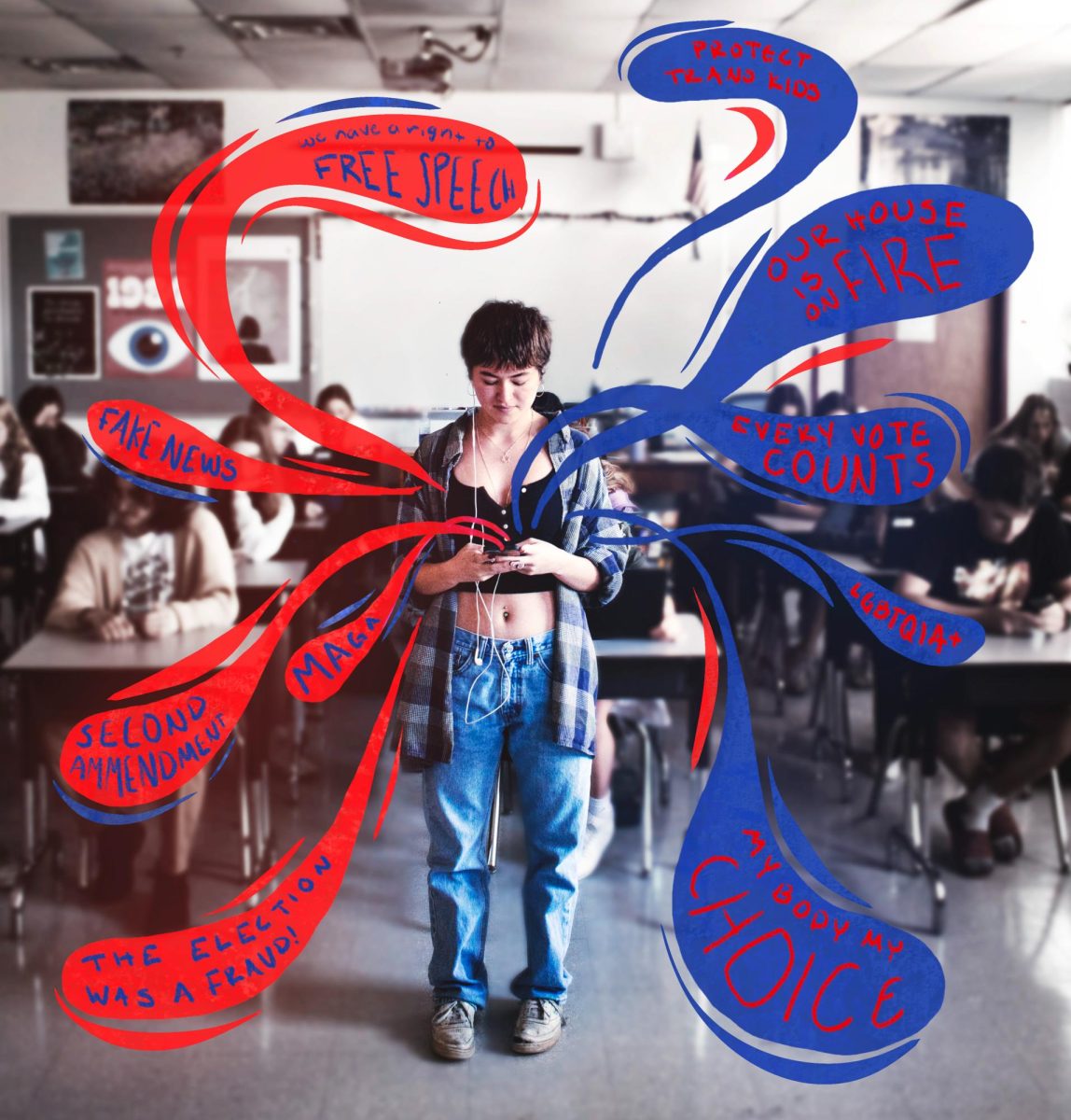As teenagers transition from the secure bubble of middle school into the wide, intimidating halls of high school, gaining independence from overbearing parents can be exciting. This newfound freedom and individuality leads many adolescents to explore the world of dating.
While dating is a compelling aspect of the high school experience, the motivations for teen dating extend beyond romantic attraction. Lawrence Kohlberg, an American psychologist, theorized three levels of moral development: preconventional, conventional and postconventional. As children begin to mature into their teenage years, they shift from the preconventional to the conventional level which emphasizes social rules. Fixated on conformity and peer approval, dating quickly takes over the minds of high schoolers as teens begin to observe their peers exploring relationships. Witnessing couples holding hands in the hallways and getting asked to school dances can spark an internal desire to experience the same.
Dating from the high school perspective is slightly different than that of adults, but in some ways even more competitive and pressure-filled. High schoolers are always talking, gossiping and battling over the seemingly small group of “options,” striving to find the most perfect, ideal relationship in the eyes of their peers. The demand comes from seeing friends coupled-up and feeling like dating is a crucial part of teenage years. But a desire to date is not always a shared perspective among high schoolers, and many students fall in the middle – having an open mind towards dating, but are trying to balance other priorities such as sports and academics. Some teenagers strictly view dating as a necessity, constantly in search of their “high school sweetheart.” Others avoid the concept completely, strictly looking to develop friendships.
“I think that people’s priorities shouldn’t lie in dating,” Joelle Shen (’25) said. “Let dating come to you, if you find the right person. I don’t think it’s hard to find a relationship, it’s hard to find a good one. Figure out what you do and don’t like before getting into a relationship so you can be confident in yourself, first.” .
Looming over the bliss of many teen relationships is the goodbye that comes with college. The start of senior year, graduation and the summer before college are all just timestamps on the ticking clock of a high school relationship. While this is not always the case depending on the path students choose to take after high school, for most, there comes a time when they must make a decision as to whether or not they will stay together. And the stigma surrounding entering college with a partner can be confining.
“If they really think that they can do long distance, then that’s great,” Becca Berg (’25) said. “But you’re kind of moving on in life, so it would be really hard.”
College is often perceived as an opportunity for personal reinvention. Going into it with a relationship that is a tether to one’s high school self can be prohibitive when it comes to evolving in a new environment at college, especially when that tether is to someone hundreds of miles away. Additionally, for many, college is a place to meet a future spouse. According to a study from Facebook Data Sciences, 28% of married college graduates attended the same school as their spouse.
Still, all of this is dependent on the nature of the high school relationship and the path that those involved are hoping to take after graduation.
The options for how to proceed in a relationship after high school are sparse. All are daunting and none leave both parties without emotional damage. Couples who choose to stay together despite divergent futures must tackle maintaining a deep friendship and romantic connection despite distance, however this is not the sole obstacle. A crucial component of any romantic relationship is shared experience. According to a report from the National Marriage Project by researchers at the University of Virginia, couples who spent time together at least once a week were more likely to be content in their relationship. In high school, this is not a challenging feat. Not only are couples able to be together in their free time, many go to the same school. At their school, students become knowledgeable of the people, culture and societal expectations that dictate their way of life. In college, understanding how these things apply in an entirely new environment takes time and a personal malleability that can be challenging to adopt. Attempting to explain life to someone who exists outside of this new domain and has no concrete experience with the people or the place can lead to growing feelings of frustration.
Through frequent Facetimes, phone calls and texts, high school couples who stay together in college attempt to combat the friction of distance through technology. However, these methods often lack intimacy. When speaking over the phone, it can be challenging to convey emotion and talk about important topics. Furthermore, according to an article published by Psychology Today, in-person interaction provides a greater mood boost than online interaction.
However, while such circumstances may splinter some relationships, others manage to endure despite the difficulties presented by distance.
“My parents went to Fairfax High School, and then my mom went to JMU and my dad went to UVA,” Sarah Taylor (’25) said. “They broke up for a couple months, but then they got back together and got married in 1998. Now my parents have a really strong relationship because of the communication they learned during long distance.”
Considering all of the deterrents of a long distance relationship following high school, some couples opt not to take their relationship past the safe confines of their hometown. This decision, however, often comes with unintended consequences that impact the quality of the relationship even before the breakup. Whether this is a spoken or unspoken choice between the couples, subtly placing an expiration date on a relationship changes the relationship at its core. What was at first something with long term potential can become simply a way to pass the time.
“I have been in a relationship for a good part of high school, and it’s been fun, but I never really imagined myself going to college with a boyfriend,” an anonymous junior said. “College is stressful to begin with, and maintaining a relationship will add unnecessary anxiety.”
Although it is ultimately only a small part of teenage life, relationship status can alter the high school experience. For better or for worse, couples can learn about themselves through one another. In contrast, teens who choose to spend their younger years single develop a sense of independence and self-reliance sometimes lost in the rapture of a relationship.
“I think that the decision to be in a relationship needs to come from a place of self confidence, because how can you be in a relationship if you don’t feel good about yourself; you’re just going to doubt yourself and the other person,” Abby Garrod (’25) said.






